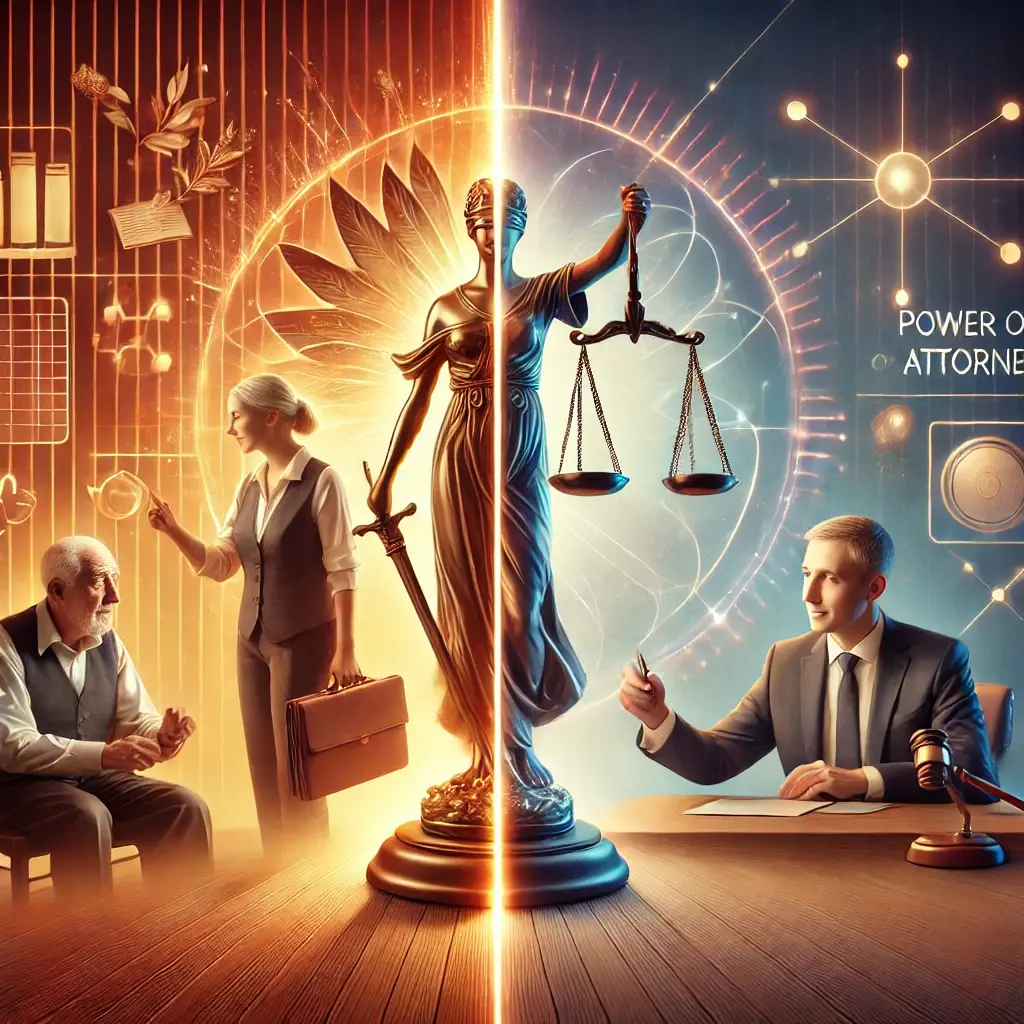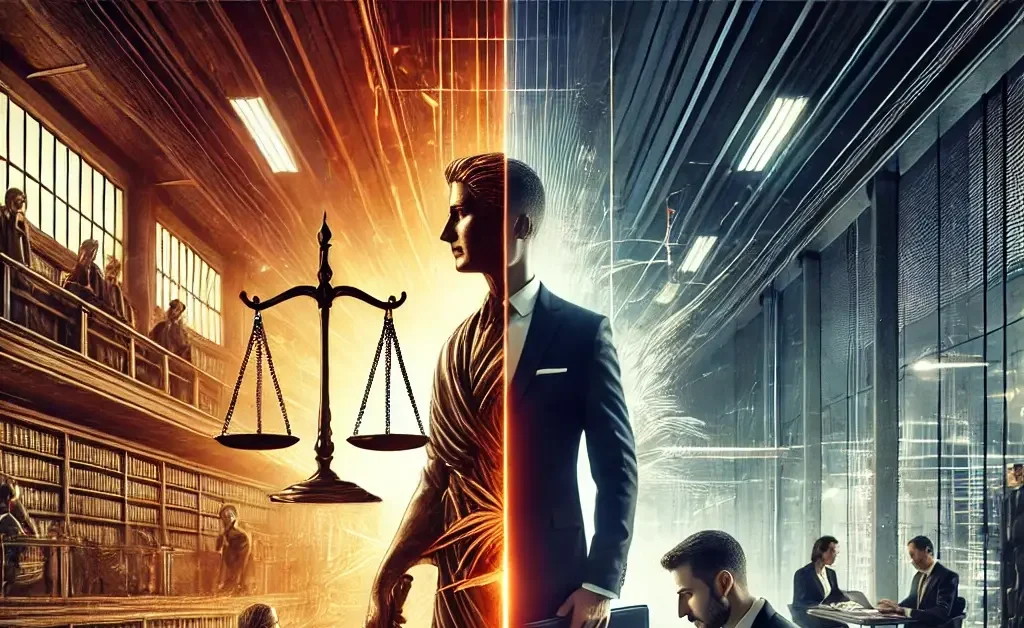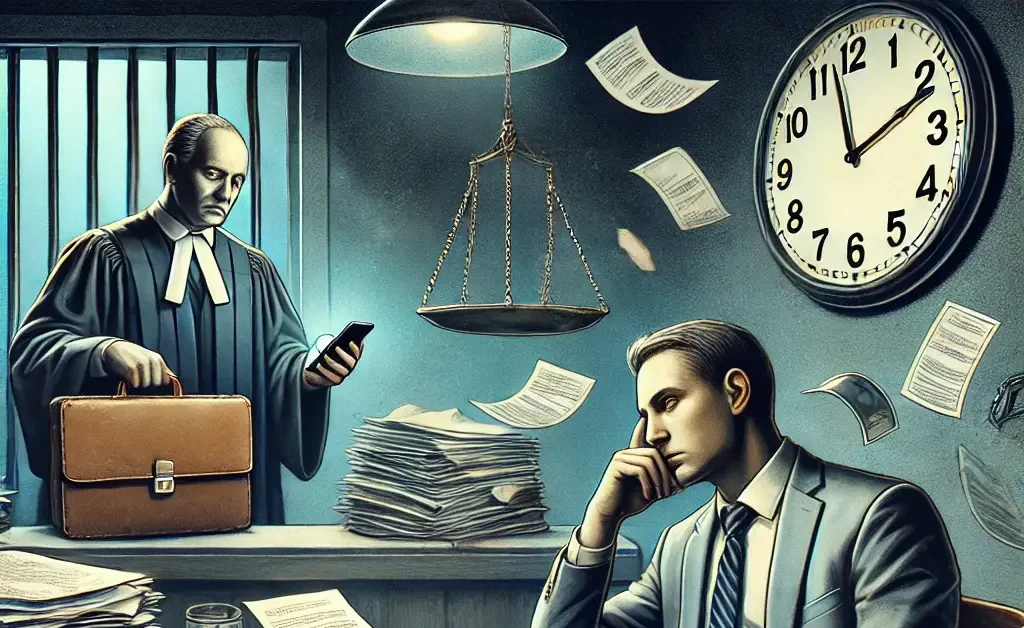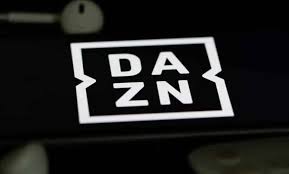In cases where an individual is no longer able to take care of themselves because of illness, age, or disability, a legal system has to be established to provide for their needs. Two main roles that assist in such a situation are a conservator and a person with power of attorney (POA). Whereas both are used to make decisions on another’s behalf, the two legal instruments differ substantially in authority, intent, and method of appointment. Let us demystify the differences and look at when one would be better suited than the other.
What Is a Conservator?
A conservator is a person or organization appointed by the court to assume responsibility for handling the affairs of a person who has been found legally incapacitated. This is usually done when one is no longer able to handle their personal, financial, or medical decisions. It’s formalized and very much regulated since the court has jurisdiction over who can become the conservator and what authority they will have.
A conservatorship can be classified into two categories:
Conservatorship of the Person: Here, the conservator takes decisions regarding the personal care of the individual, such as healthcare and residence.
Conservatorship of the Estate: This category deals with the financial affairs of the individual, including paying bills, managing assets, and monitoring investments.
Because a conservator’s authority is given by court order, they are required to report their activities to the court on a regular basis. The conservator is also responsible for making sure the person they are caring for is well.
What Is Power of Attorney (POA)?
A power of attorney (POA) is an official document that enables a person (the principal) to name another individual (the agent or attorney-in-fact) to act on their behalf. The person with POA is not designated by a court, but it is a self-initiated choice by the principal. This is a legal instrument usually employed when a person foresees being unable to conduct their own affairs, either for a temporary or a permanent period of time, because of illness or incapacity.
There are various forms of POA:
Durable Power of Attorney: This will not be affected even if the principal becomes incapacitated. It is usually employed for long-term care of financial or healthcare matters.
Springing Power of Attorney: This type only takes effect when a designated event happens, like the incapacity of the principal.
General Power of Attorney: This will give the agent general powers of authority to care for nearly all aspects of the life of the principal.
Limited Power of Attorney: This is used to authorise the agent to do special things, including selling property and handling a business transaction.
The most important benefit of POA is that it is adaptable and may be modified according to the convenience of the principal. Moreover, it does not need court intervention or supervision.
Key Differences Between Conservator and Power of Attorney
| Aspect | Conservator | Power of Attorney (POA) |
|---|---|---|
| Appointment | Appointed by a court after a legal hearing | Appointed by the principal without court involvement |
| Scope of Authority | Appointed by a court after a legal hearing | Can be limited to specific areas (financial, medical, etc.) |
| Duration | Typically permanent, unless the court revokes it | Can be revoked or altered by the principal at any time |
| Oversight | Subject to ongoing court supervision | No court oversight unless a dispute arises |
| Purpose | For individuals who cannot manage their affairs independently | For individuals who want someone to handle specific tasks on their behalf |
| Process | Requires a court application and hearing | Requires no court intervention, just a signed document |
When is a Conservator Needed?
A conservatorship is typically utilized when a person is no longer able to make significant life choices because of extreme mental or physical disability. This can include conditions such as Alzheimer’s disease, dementia, or severe brain injuries. A conservator might have to intervene when there is no other person available or able to take care of the individual’s affairs, or when the person has not established a POA.
If a person has not designated anyone to manage their affairs in case of incapacitation, a conservatorship may be the last resort. The court will also evaluate the person’s mental and physical condition to decide the extent of assistance required.
When Is Power of Attorney Helpful?
A power of attorney is usually executed when an individual is looking forward and would like to make provision for his or her financial or healthcare needs to be taken care of by someone he or she trusts, should he or she become temporarily or permanently incapacitated. A POA is an adaptable tool which can be custom-made to meet certain situations, like dealing with finances or healthcare decisions.
The principal has complete control over the authority vested and can cancel or modify the POA whenever they wish, as long as they are mentally capable. A power of attorney is beneficial for individuals who wish to have some control over who handles their affairs without going to court.
Legal Responsibilities of a Conservator vs Power of Attorney
Both an agent under a POA and a conservator are statutorily obligated to act in the best interest of the person he or she represents. But the responsibilities of a conservator are usually broader because they have responsibility for the individual’s personal and financial affairs. They are also required to give periodic reports to the court on their actions.
A power of attorney agent also acts in the best interest of the principal but does not have the same level of supervision or responsibility. Their responsibilities are set by the language expressed in the POA document and may be narrower in scope.
Learn More About Conservatorships
For more information about conservatorships and the legal process, see Nolo’s Legal Encyclopedia.
FAQs
What if I don’t have a power of attorney or conservator?
If an individual becomes incapacitated without a POA or conservator, the court can step in and appoint a guardian or conservator to manage their affairs. This can be time-consuming and expensive.
Can I modify my power of attorney after it has been signed?
Yes, provided you are mentally capable, you may alter or revoke your power of attorney at any time by signing a new document and informing all concerned parties.
May a conservator make every decision for the person he or she is responsible for?
Yes, a conservator is legally entitled to make decisions regarding the individual’s personal, medical, and financial affairs, subject to court review and approval.
Is a power of attorney always valid?
A power of attorney can be restricted to certain tasks or kinds of decisions. Moreover, some institutions may demand certain forms or paperwork for POA to be valid within their scope.
Conclusion
Though both a conservator and a power of attorney assist in handling the affairs of a person who is incapacitated, they have different functions and are governed by different legal regimes. A conservatorship requires court involvement and oversight, while a power of attorney is a more flexible tool that can be customized and revoked as needed. Understanding the differences between these two roles is essential for making informed decisions about who will manage your affairs if the need arises. Always consult a legal professional to determine the best approach for your personal situation.
Get a clear explanation of the differences between an attorney and a lawyer in our detailed post here.








One thought on “Conservator vs Power of Attorney: Understanding Key Legal Differences”